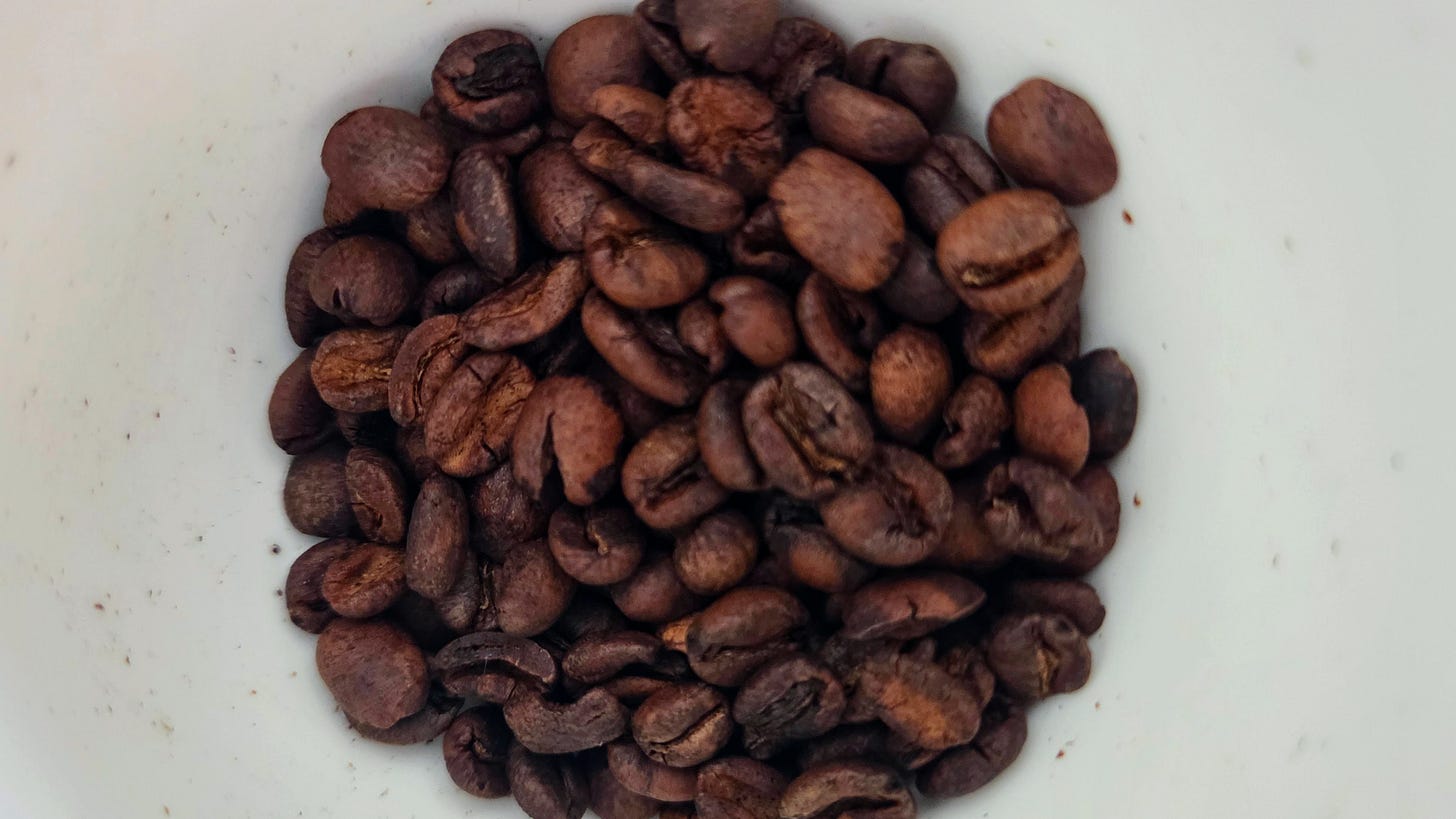The Magic Roast is a regular(ish) shot of gooey caffeine goodness straight to your inbox, by Tauranga Moana based “journalist” (according to Sprudge.com), writer, photographer, and coffee fiend, Anthony Bull. The Magic Roast attempts to demystify the often confusing world of coffee, tries weird and whack coffee trends so you don’t have to, and will write about anything, even if the link to coffee is weak. Get among it.
Growing coffee is hard - but we’re doing it
Growing coffee is a bit like getting a toddler to sleep. It’s fickle. Demands ideal conditions. Demands consistency. It demands love and dedication.
Coffee trees thrives in areas that have mild temperatures (15-24 degrees C), consistent rain with dry spells at the right time. It needs good soil with a lot of drainage, sun so it’s warm during the day, and altitude so it’s cool during the night.
As a result of these particular conditions, coffee is mostly grown in countries that lay between the Tropics of Cancer and Capricorn (those dotted lines on the globe that you haven’t thought about since primary school).
This zone is known as the bean belt (honestly).
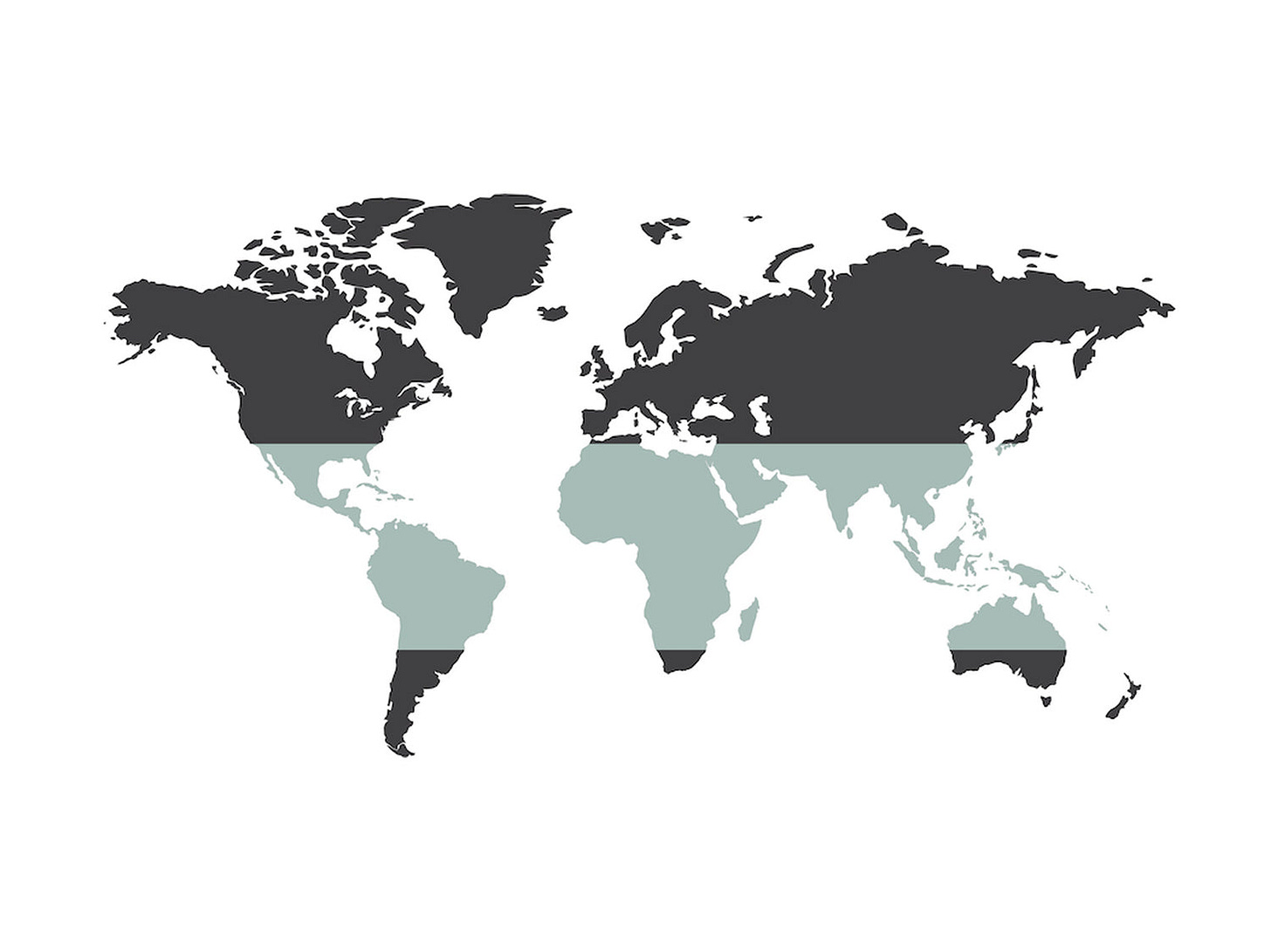
You’ll note that the Aotearoa is not in the bean belt, which should mean that growing coffee here on a commercial scale is impossible. Difficult yes, but impossible, no.
Ikarus Coffee
Ikarus Coffee, is located in Northland's Pekerau Hills, and is New Zealand’s first, and only, commercial coffee plantation.
Earlier this year I purchased a bag of the anearobic natural coffee they had grown, picked, processed and roasted themselves.
Before we get into how it tasted, I reached out the Ikarus Coffee crew to see how the coffee growing experience was treating them.
“Maybe the experience of sipping on this unique and unusual coffee speaks something of magic, grown on the extreme fringe of what's possible,” Rob and Marie of Ikarus Coffee said.
This expression of nature, and your knowledge of coffee experience may inspire your audience to try it, thereby making it more of a sustainable reality for the project.
The coffee Ikarus grows is the Laurina variety - a part of the arabica family of coffee.
UK coffee website, Perfect Daily Grind, described Laurina as “one of the most prominent low-caf coffees in the world. It has experienced a resurgence in popularity [in recent] years, despite being identified over two centuries ago. As well as containing around half the caffeine content of other arabica varieties, it is also known to have a desirable flavour profile. This was notably showcased in the winning 2018 World Brewers Cup routine.”
“Arabica var Laurina is a very rare and unusual variatal. It is quite unknown as well from most people and that in itself is interesting,” the Ikarus Coffee crew said.
“What is also interesting is it's low caffeine content and it's natural low acidity, which set it apart. As a health and wellbeing point of view it has a place for a come back and deserves a bit more recognition.”
Northland doesn’t appear to be a great place to grow coffee, and I asked Ikarus Coffee about their unique location.
“The only thing I can tell you in terms of climate is the mimicking of a high altitude growing situation, because of the latitude we are at. This gives the coffee a lot a character. [However] I wouldn't say coffee is thriving here as it's so marginal.
“The struggle of growing coffee here is more of a personal challenge and an ongoing process of learning. The biggest challenge is the labor as everything is hand picked, processed and sorted. Secondly the price point, to make it viable in our economic environment.”
So, is it worth it?
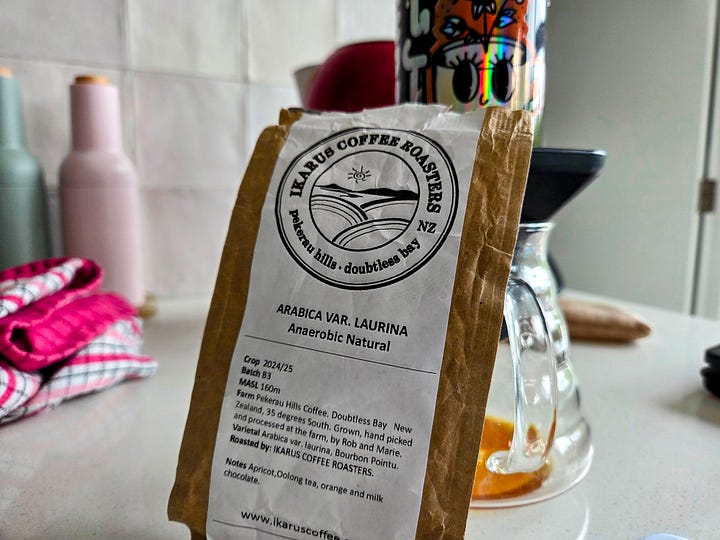
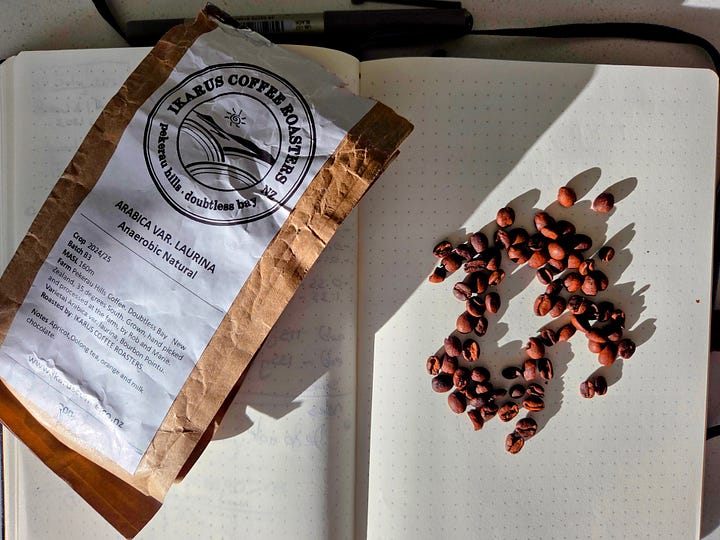
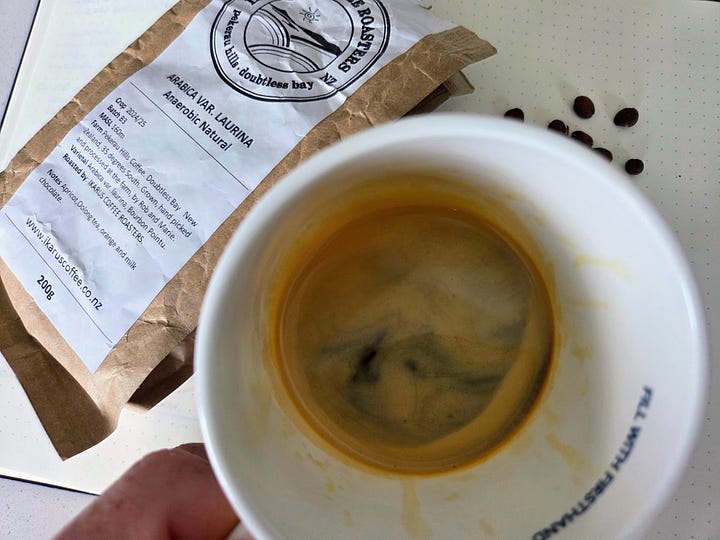

Over the last few weeks I’ve been working my way through the bag that I purchased, and I have to say that it was well worth the experience, one that I’m looking forward to repeating next season.
It seemed to me to be on the darker side of a light roast, but the flavours and characteristics were still able to shine and come through the cup.
The cool thing was that it worked well as a pour over and AeroPress with cooler temps, as well as espresso drinks.
The apricot and orange-chocolate notes really shone through. It was a very balanced cup, didn’t have any of the mouth puckering acidity, and was sweet.
At $60 for a 200g bag, this is on the pricey side, but not hugely so - it’s pretty comparable to other rare or interesting coffees with this sort of processing.
So for a pretty unique coffee experience, and one that is so sustainable from a transport and carbon point of view, it’s well worth the money.
Get over to Ikarus Coffee and grab a bag of New Zealand grown greatness.
As of this morning, the still have a good amount of the anaerobic washed processed coffee, but are very limited on the anaerobic natural (the one I tried) and iced natural processed coffees. Better get some while they’re still around!
Thanks for reading!
And if you’ve already checked out my episode of ‘Still Any Good?’, thanks for listening!
If you haven’t, check it out - it was a lot of fun.
The Magic Roast x 'Still Any Good?' Podcast
I was absolutely honored to be asked to join Robert Johnson and Christopher Webb on the ‘Still Any Good?’ podcast - a show that “runs the risk of ruining our childhoods by revisiting fondly remembered films.”





